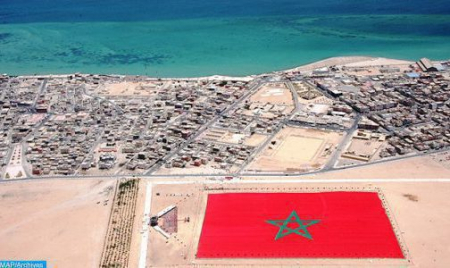Peru Withdraws Recognition of ‘sadr’, Supports Morocco’s Autonomy Plan in Sahara
The Republic of Peru decided on Thursday to “withdraw recognition of the ‘sadr’ and break all relations with this entity,” while supporting the autonomy plan for the Moroccan Sahara. In a statement issued by the Ministry of Foreign Affairs, Peru expresses its “respect for the territorial integrity of the Kingdom of Morocco, its national sovereignty, and the autonomy plan relating to this regional dispute” around the Moroccan Sahara. The statement said that this decision was taken following a telephone conversation between the Minister of Foreign Affairs of Peru, Miguel Ángel Rodríguez Mackay, and Nasser Bourita, Minister of Foreign Affairs, African Cooperation and Moroccans Abroad. The statement explains that this decision is taken in accordance with international law, enshrined in the Charter of the United Nations and in full compliance with the principles of territorial integrity of Member States of the United Nations. It also comes in “support of the efforts of the UN Secretary General and the Security Council to achieve a political, realistic, lasting and consensual solution to the dispute over the Sahara.” The statement continued that “taking into account that there is no effective bilateral relationship to date, the Government of the Republic of Peru decides to withdraw its recognition” of the ‘sadr’ and “break all relations with this entity,” adding that “this decision will be notified to the United Nations.” The same source stressed that “in accordance with international law and UN resolutions on the Sahara issue, the Government of the Republic of Peru appreciates and expresses its respect for the territorial integrity of the Kingdom of Morocco and its national sovereignty, as well as the autonomy plan relating to this regional dispute. “The two governments agreed to strengthen their bilateral relations through the immediate signing of a multi-sectoral roadmap that includes periodic political consultations, effective cooperation in the economic, commercial, educational, energy, agricultural and fertilizer fields,” the statement concluded.

